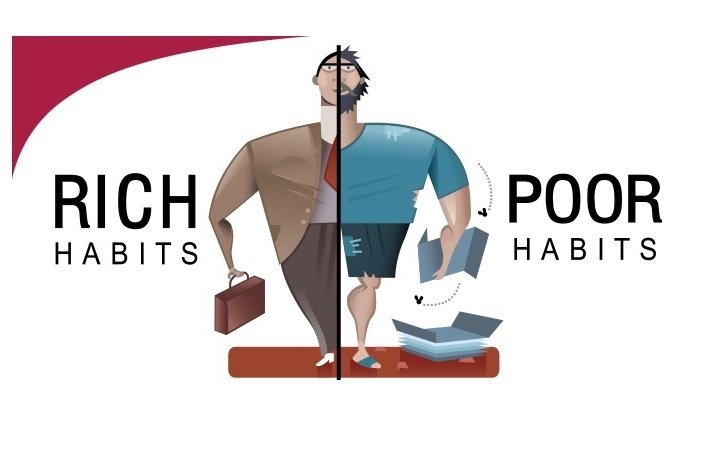If you find value in these articles, share them with your inner circle and encourage them to sign up for my rich habits of daily tips/articles. No one succeeds on his own. Thanks!
Tom@richhabits.net
Success is a fleeting teacher who offers a short paragraph with lesson-egg superficial, ego strokes and incomplete. However, errors are a master educator who delivers a textbook with hard -won wisdom that shapes character, resilience and strategy. This dichotomy is evident in personal development, business and the stories of those who have turned back into steps. When we draw from my rich habit research, media coverage and third-party insight, we investigate why the lessons of the failure are deep and lasting, while success often only gives a fleeting clap on the back.
In my rich habits, I asked the daily habits of wealthy and fighting individuals, revealing that failure is a common thread among those who eventually succeed. The wealthy do not stay away from failure; They embrace it as a mentor. For example, my research showed that 27% of the self -made millionaires failed at least once in business, yet these failures taught them critical lessons on risk management, persistence and adaptability. A media offering, Forbes, highlighted this in a 2016 article about my work and noticed that “failure is the digel where real success is forced as it forces individuals to confront weaknesses and refine their approach.” Unlike success that can breed self -satisfaction, failure requires introspection and change.
The lessons leaned from failure can fill a textbook with thousands of words. Failure -the learning book is thick because it exposes vulnerabilities and forces growth. Thomas Edison, often quoted in success literature, failed thousands of times before perforating the pear. Each wrongly taught him what didn’t work, refined his process.
Similarly, the findings of my rich habits revealed that successful individuals practicing conscious learning and spent 30 minutes or more daily on self-education-egg spurred by failures that highlighted knowledge holes. A 2020 entrepreneurial article repeated this and said, “Failure teaches entrepreneurs to turn, adapt and innovate, while success often strengthens existing behavior without questioning their lifetime.”
Success, on the other hand, teaches you much less because success can hide shortcomings, cause selfish thinking and lead to complacency. A study from Harvard Business Review 2018 found that companies that run high on success often fail to innovate, with reference to Nokia’s fall as a good example. My rich habits data are in line with this: 84% of the wealthy attributed long -term success of habits formed in response to failures, not successes. Success feels good, but rarely forces the deep emotional reflection that failure causes.
In a Ted Talk from 2021, psychologist Angela Duckworth discussed how Grit – gave birth from overcoming setback – Outweigh’s talent to predicting success. Failure builds gravel by teaching resilience and humility, qualities absent in the fleeting glow of triumph.
Similarly, my work, shown in a 2019 CNBC article, emphasized that wealthy individuals consider failure as painful feedback, not defeat and use it to refine their habits and strategies.
Ultimately, error’s textbook is strict and forces us to rewrite our story with each lesson. Conversely, sections of success often lack depth and leave us unprepared for the next challenge. As my rich habits research and countless stories show that embracing failure as a teacher equips us with the tools to build lasting success-a hard-earned chapter at a time.

Tom Corley is an accountant, financial planner, public speaker and author of the books “Insert-Less Wealth: Smart Money Habits At All Phases of Your Life” and “Richkids: How To Raise Our Children To Be Happy and Successful In Life”. Corley’s work is shown on CNN, USA Today, The Huffington Post, Success Magazine and many other media and podcasts in the US and 27 other countries. Tom is a frequent contributor to Business Insider and CNBC.
